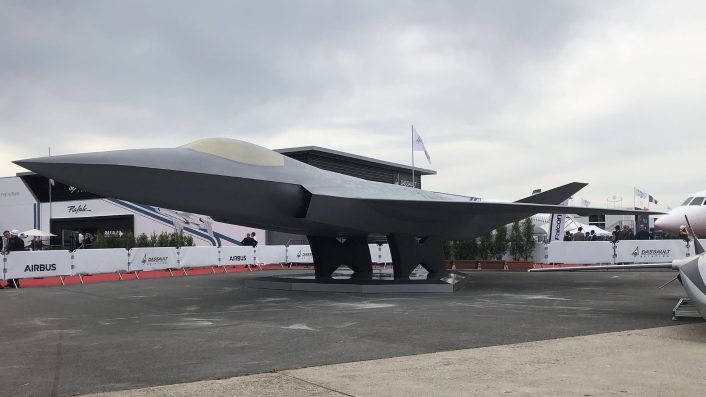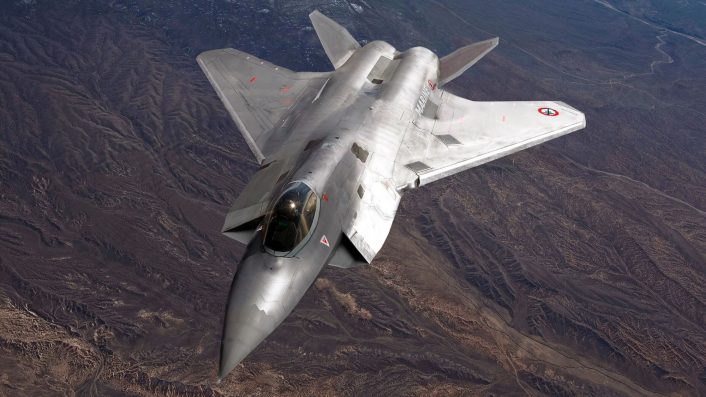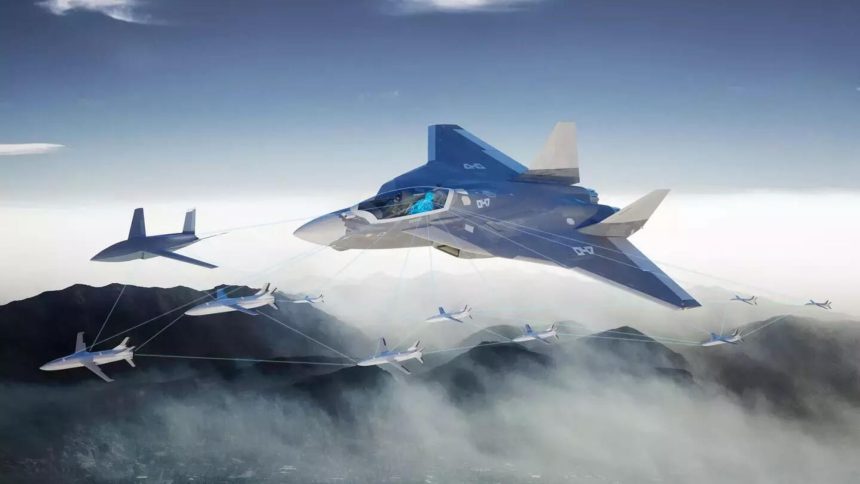Partners are becoming concerned about the FCAS overshooting the 2045 deadline, as bids for the Phase 2, which will produce a demonstrator aircraft, are yet to be announced.
Reflecting the growing unease over delays in the French-German-Spanish FCAS (Future Combat Air System) sixth generation fighter consortium, France’s Dassault Aviation has called for taking 80% of the workshare, German publication Hartpunkt reported last week. The report said the company believes it possesses the technical expertise and capability to design the NGF (Next Generation Fighter), and German defense authorities have learnt that the French government backs Dassault’s view.
Raising Dassault’s profile in the project would put it at odds with Airbus and Indra – representing Germany and Spain – over a project that has already witnessed infighting over industrial workshare agreements and intellectual property access. Both Hartpunkt and Reuters quoted German lawmaker Christoph Schmid from the Social Democratic Party (SPD), who said it would be the last “nail in the coffin” for the project if the French press forward with their demand.
As it was later revealed in the French media reports, Dassault’s proposal was neither a public statement nor an unofficial communication to partner nations, but part of a broader feasibility report mandated by the FCAS/SCAF program itself. The companies were expected to give recommendations on various aspects of the program.

Implications
The FCAS (or SCAF -Système de combat aérien du futur- in French), is a ‘system of systems’ program, with the work divided into several “pillars,” representing each of its components. The first is the NGF (Next Generation Fighter); the new generation engine; the “remote carriers” unmanned aircraft to serve alongside the jet; and lastly the ‘combat cloud’, the digital backbone for the multi-domain data networking.
As per reports, the various sub-projects have been divided between Dassault Aviation, MBDA and Indra roughly on a 50-50 arrangement. Going by the reports, France’s push for 80% of the workshare would lead to Dassault developing the fighter, the engine made by Safran – through its EUMET joint venture with Germany’s MTU Aero Engines – and the sensors by Thales.
This would lead to MBDA Germany and MBDA Spain developing the Combat Cloud and Remote Carriers, and Indra possibly developing the sensors, electronics, avionics and payloads like electronic warfare for the unmanned aircraft.

What is driving Dassault’s demand?
The reports have emerged as bids for the project’s Phase 2, involving building and flying a demonstrator aircraft, are yet to be announced, raising consternation within the defense companies and their respected capitals. French reports empathize with Dassault, explaining that its demand, which possibly echoes the sentiment in Paris, is not a unilateral position but comes from concerns about the project possibly overshooting the 2045 deadline.
Meta-Defence and OpexNews explain that, given the delay, a company with decades of end-to-end fighter aircraft development experience is better suited to move quickly on the design, award contracts and shorten development timelines. While this may hold some credence, we also cannot rule out a significant element of industrial rivalry, where Dassault might not want to cede space to another defense major.
In the recent past Dassault Aviation CEO Eric Trappier had bemoaned during hearings before the National Assembly over the Dassault Falcon 10X not being chosen as the carrier aircraft for France’s next AEW&C (Airborne Early Warning and Control) system. The aircraft’s first prototype is still in the manufacturing stage, and Paris subsequently chose Saab’s GlobalEye AEW&C aircraft on Jun. 18, 2025, after nearly a year of speculation and reports about having identified the platform.
Concept design of FCAS’s NGF & Concept engine of NGF https://t.co/RKRZOGWw10 pic.twitter.com/9DRKP8AJ3X
— 笑脸男人 (@lfx160219) May 19, 2023
OpexNews cited the example of the nEUROn drone that represents “successful European cooperation.” The “clear framework” of delegating “tasks based on each partner’s expertise,” handed the project management to Dassault, enabling “the delivery of a demonstrator on time and within budget.” Italy, Spain, Sweden, Greece, and Switzerland participated in nEUROn.
SCAF, however, has “no clear leader and no stable schedule,” while the partners have not been able to “evolve” and “review the program’s organization.”
France could also be worried that any further delay will leave it without a next generation jet to fly alongside the Rafale F5, when it retires the F4, while Germany would have the F-35, of which expanded its order. It is also possible Dassault envisages a nuclear role for the SCAF/FCAS, given France’s proactiveness in defending NATO’s eastern flank.
‘Best athlete principle’
Meta-Defense says Dassault’s “refocusing plan” is driven by “best athlete” principle, proposing “management by manufacturers with expertise on each pillar.” Germany can develop the systems of systems, support drones and munitions, while Spain can develop the electronic warfare and simulation technologies.
France Demands 80% Share in Franco-German Fighter Jet Project
France has told Germany it wants an 80% workshare in the joint Franco-German FCAS fighter jet program, a defence source told Reuters.
The €100 billion project, involving Dassault (France), Airbus (Germany), and… pic.twitter.com/w6B6nJCbrS
— Clash Report (@clashreport) July 8, 2025
Lastly, the publication sheds light on the source of Dassault’s proposal: “This figure of 80%, taken up by certain German media as proof of a desire for French capture, is in reality neither a political demand nor a unilateral French position. It is a figure put forward by Dassault as part of a report commissioned by the program itself, as a technical recommendation aimed at meeting the 2045 deadline.”
Project is certainly delayed
An Airbus spokesperson quoted by Reuters and Hartpunkt did not comment on the matter, yet reflected the sense or urgency that has gripped the three capitals on the delay to Phase 2. “The coming months until the end of the year will be crucial for us to swiftly enter the actual development phase of the program,” the spokesperson said.
Hartpunkt said: “The disputes within the FCAS consortium have reportedly already led to the fact that the bids for the upcoming Phase 2 of the project have still not been finalized.”
Sixth-gen combat aircraft program, FCAS pursued jointly by France, Germany, & Spain, has again run into a storm.
The differences between contractors Dassault Aviation, which represents France, and Airbus, representing Germany and Spain, have spilled over at the Paris Air Show. pic.twitter.com/9jNHqpJLKA
— Varun Karthikeyan (@Varun55484761) June 21, 2025
OpexNews also quoted Airbus CEO Jean-Brice Dumont in a Jun. 25, 2025 report, who said that the program “will have no chance of success” without a political and industrial agreement by the end of the year. Dumont also acknowledged “real difficulties” in the execution of the current phase. “Both require a resumption of control. In short: the time for adjustments is over, but for decisions,” OpexNews added.









